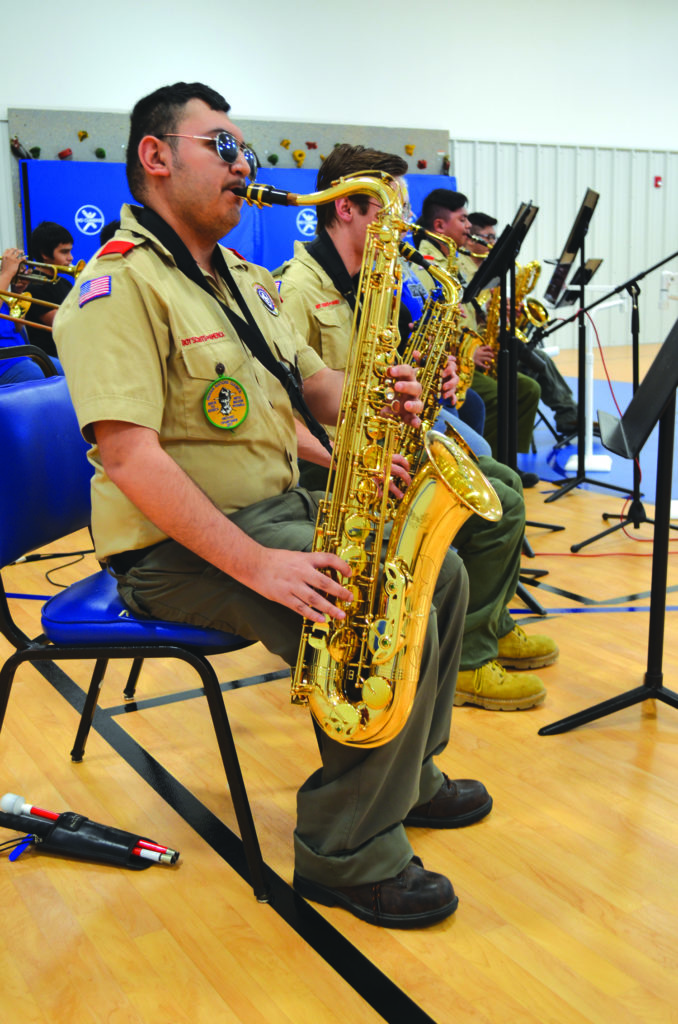If you’re looking for a program that can assist with enjoying life to the fullest while better functioning with disabilities, the Oklahoma Department of Rehabilitation Services (DRS) is ready to help.
With a slogan of “empowering people with disabilities,” the department’s dedicated staff members assist Oklahomans with disabilities navigate 25 career planning, employment, education and independent living programs. The team also guides clients through applying for and receiving Social Security determinations due to eligibility based on medical conditions.
“DRS helped 184,082 people in state, fiscal [year] 2022,” says Jody Harlan, DRS’ communications director. “Staff in five program divisions provide these services in every county in Oklahoma.”
Vocational Rehabilitation (VR) assists those jobseekers with disabilities that are non-visual to become self-sufficient through independent living and employment programs. For those who are hard-of-hearing or deaf, VR has offices that accommodate Oklahomans from offices in Tulsa and Oklahoma City.
This program offers various forms of assistance, including medical and psychological assessments, counseling services and treatment of disabilities to enhance employment opportunities. With training and education, the use of assistive technology, job placement and post-employment services, many Oklahomans with disabilities are able to obtain and retain jobs as well as move ahead in their careers.

The Oklahoma Department of Rehabilitation Services, along with having an award-winning jazz band, assists people with disabilities with employment, education, independent living and more.
Photos courtesy the ODRS
“Services for the Blind also provides specialized travel and mobility training and specialized in-home rehabilitation teaching to help job seekers prepare for work, and seniors ages 55 years and older to remain in their homes,” says Harlan.
Services for the Blind and Visually Impaired also operates the Oklahoma Library for the Blind and Physically Handicapped.
“The division also establishes and assists Business Enterprise Program managers who operate their own food service business, and the Older Blind Independent Living Program,” says Harlan.
Other divisions are the Oklahoma School for the Blind in Muskogee and the Oklahoma School for the Deaf in Sulphur. These statewide resource centers provide free education curriculum that meet state standards and provide disability-specific instruction – which is not readily found at other public schools in Oklahoma.
“OSB and OSD provide sports, clubs and social experiences for students who live on campus Monday through Thursday and transport students home for weekends, holidays and summer break,” says Harlan. “Commuter students also attend classes but go home after school to nearby communities. OSB and OSD also provide free summer school programs and outreach services for students who attend other public schools, their families and educators.”
While OSB has a bevy of other programs, a favorite is the award-winning jazz band.
OSD offers a free online American Sign Language program that has been attended by more than 350,000 people from 30 different countries.
Harlan is proud to note that both OSB and OSD had 100% graduation rates in the 2021-2022 school year.
The disability specialists, para-professionals and medical/psychological consultants at Disability Determination Services (DDS) review applicant’s work and medical histories to determine medical eligibility for
Social Security Disability Insurance and Supplemental Security Income benefits.Following federal eligibility guidelines, DDS staff weed out fraudulent claims with a 92.2% accuracy rate.
According to Harlan, DRS maintains a popular online Disability Resource Guide at okdrs.gov/guide/home which lists contact information and brief summaries for more than 2,000 social service and disability resources.
“This resource has averaged up to 10,000 hits each month,” says Harlan. “For general information about DRS services, visitokdrs.gov or phone 1-800-1845-8476 during business hours to talk with a live – not recorded – customer representative.”






















